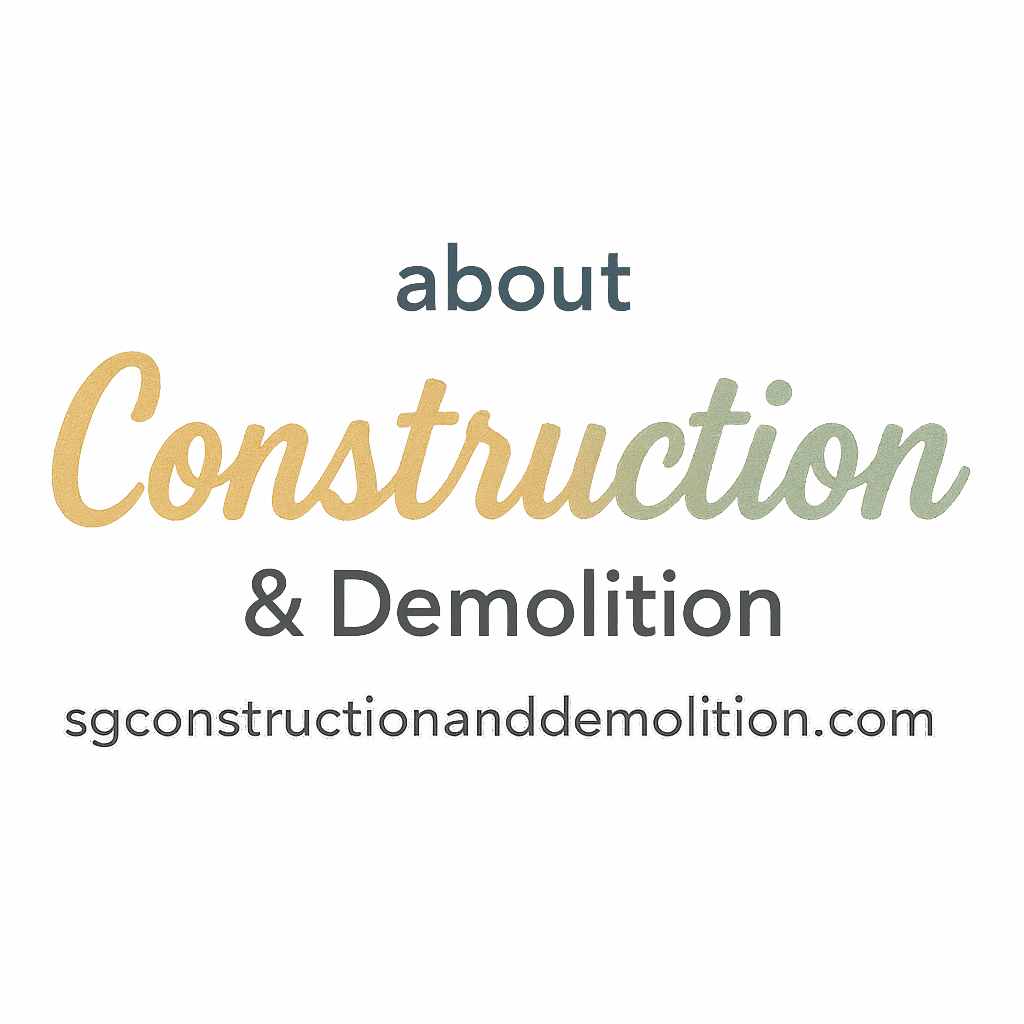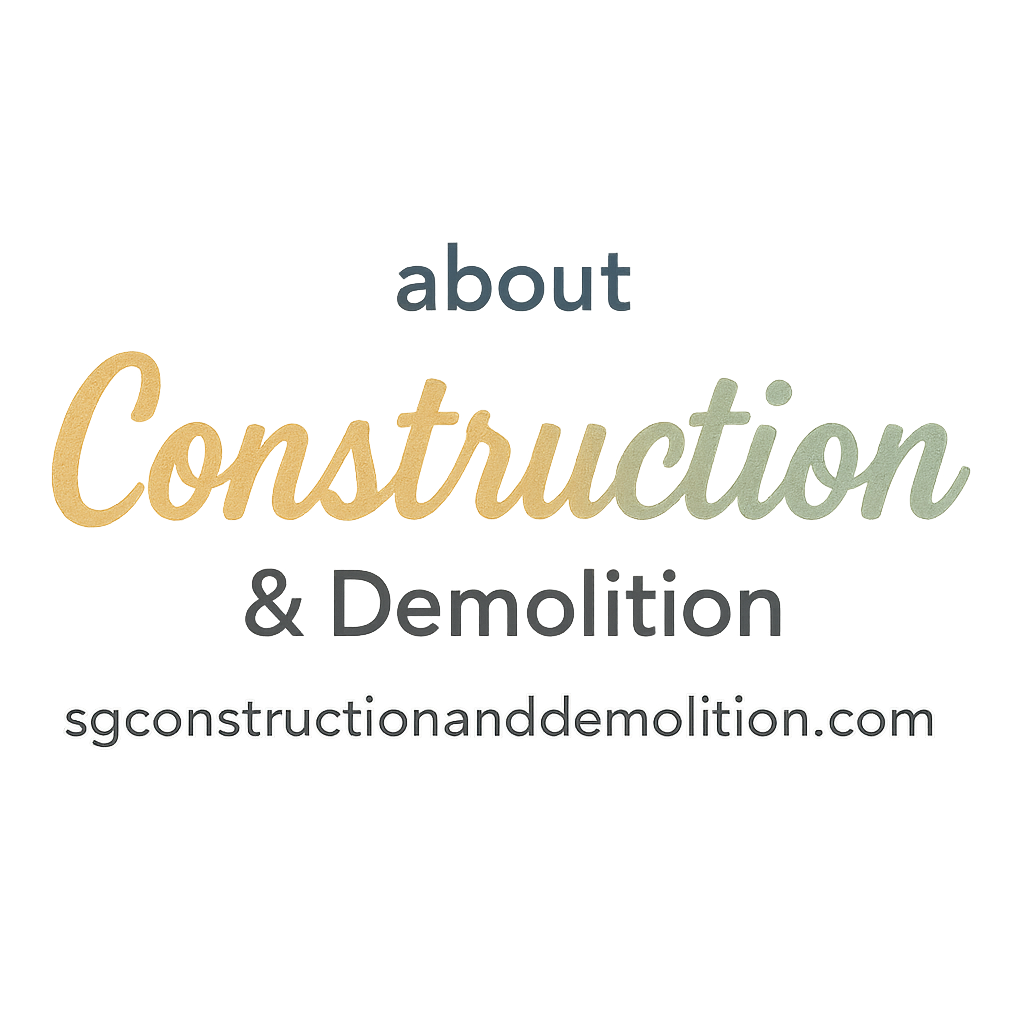Introduction
Let’s be real—starting in construction can feel like being tossed into the deep end without floaties. Everyone has advice, most of it conflicting, and the internet is packed with half-truths. If you’re a beginner, you’ve probably heard some “rules” that sound right… but are totally off base.
In this post, we’re going to bust 5 construction myths that beginners still believe. These myths can waste your time, cost you money, and even put you in danger. By the end, you’ll walk away sharper, safer, and ready to build with confidence. And hey—if you’re looking for more construction basics, this guide will link you to the right tools (and truths).
Myth 1: You Don’t Need a Permit for Small Projects
The Truth About Permits
Here’s the thing: permits aren’t just for skyscrapers and home additions. Even minor changes—like knocking down a wall or upgrading electrical systems—often require approval. It’s not about red tape, it’s about safety and legality.
Think of a permit like a seatbelt—it might feel like a hassle, but it’s there to protect you.
Risks of Skipping Permits
If you skip permits and the city finds out, you could face:
- Fines and stop-work orders
- Mandatory tear-downs
- Problems selling your property later
Not fun, right?
How to Stay Compliant
Before lifting a hammer, check your local regulations. Better yet, consult with a licensed contractor or inspector. Our post on planning and safety is a great place to start.
Explore more on this in our construction tag archive.
Myth 2: Demolition is Easy—Just Smash Everything
Why Demolition Requires Planning
TV shows make demolition look like a rock concert with sledgehammers. In reality? It’s more like surgery. One wrong move and you might hit plumbing, electrical, or load-bearing elements.
The Tools and Techniques Matter
Using the right tools and equipment is key to safe and efficient demolition. It’s not just brute force—you need precision, protection, and a method.
You can check out more demolition techniques in this handy guide:
👉 Demolition Techniques
Also browse the demolition tag for more.
Safe Demolition is Smart Demolition
Don’t believe the myth. A well-planned demo is faster, safer, and cheaper in the long run. If you’re a beginner, start small and learn from the pros.
Myth 3: Power Tools Make Everyone an Expert
Understanding Power Tools Takes Time
A power drill doesn’t turn you into a contractor overnight. Just because you can use it doesn’t mean you’re using it right. Knowing when, where, and how to use the right power tools is crucial.
Safety Isn’t Optional
Power tools can be dangerous if misused. From flying debris to serious cuts, accidents happen fast.
Start Small and Build Skill
Take your time. Watch tutorials, read manuals, and practice on scrap materials. Don’t jump into a renovation with nothing but bravado.

Want more info on equipment? Click here:
🔧 Equipment Tag
⚡ Electric Tag
Myth 4: Sustainable Building Is Too Expensive
Long-Term Benefits of Green Construction
Sure, the upfront cost might be a bit more—but the long-term savings are where green building shines. Lower utility bills, higher resale value, and better air quality? Yes, please.
Affordable Smart Trends You Can Start With
From smart thermostats to recycled materials, green and smart construction trends are more affordable than ever. Many builders are using innovation to make eco-friendly practices accessible.
Innovation is Making It Cheaper Than Ever
Thanks to evolving smart tech, beginners can now tap into sustainable practices without breaking the bank.
Myth 5: Planning is Just for Large Projects
Planning Is a Beginner’s Best Friend
You don’t need a massive crew to benefit from project planning. Even small DIY jobs can go sideways fast without a plan. Materials get missed. Budgets explode. Tempers flare.
How Lack of Planning Leads to Cost Overruns
Jumping into a job without a timeline or budget can double your costs. Trust us—it’s not a matter of “if,” it’s “when.”
Use Project Management Basics to Stay on Track
From daily to-do lists to basic software, staying organized isn’t optional. Check out tips in our project management tag or this breakdown on steps and methods.
And don’t forget—proper planning is what separates rookies from reliable builders.
Final Thoughts: Ditch the Myths and Build Smart
Believing construction myths is like using a GPS that hasn’t been updated in 10 years—it might get you somewhere, but it won’t be the best route. If you’re serious about learning the ropes, start with facts, not folklore.
Remember:
- Always check permits
- Respect the complexity of demolition
- Power tools require skill
- Green doesn’t mean costly
- Planning is for everyone
With the right knowledge and tools, even beginners can build like pros. And if you ever feel stuck, dive into more real-talk articles on SG Construction & Demolition—your go-to guide for cutting through the myths.
Frequently Asked Questions (FAQs)
1. Do I really need a permit for replacing a window or door?
Sometimes yes. Depending on your local regulations, certain replacements may require permits—especially if they affect structural integrity or energy codes.
2. What’s the biggest safety tip for beginners in demolition?
Know what’s behind the wall. Use tools like stud finders and always shut off power and water before starting.
3. Are there affordable green materials for small projects?
Absolutely. Bamboo, reclaimed wood, and recycled concrete are just a few options that are both eco-friendly and budget-friendly.
4. How can I learn to use power tools safely?
Start with tutorials, manuals, and practice under supervision. Always wear protective gear and never rush.
5. Can I plan my own project without hiring a manager?
Yes! Start with a simple checklist, budget sheet, and timeline. Plenty of apps can help you stay organized.
6. Is smart home tech only for high-end homes?
Not at all. Many smart devices are plug-and-play and can be added to any home—rental or owned.
7. What are some common beginner mistakes in construction?
Skipping permits, underestimating costs, ignoring safety, and over-relying on YouTube instead of actual experience or consultation.


